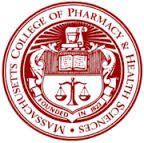What do they do?
Diagnose, treat, and prevent disorders by stimulating specific acupuncture points within the body using acupuncture needles. May also use cups, nutritional supplements, therapeutic massage, acupressure, and other alternative health therapies.
Also known as:
Acupuncture Physician, Acupuncture Provider, Acupuncturist, Chinese Medical Doctor, Herbalist, Licensed Acupuncturist (LAC), Oriental Medicine Provider, Traditional Chinese Medicine Doctor, Traditional Chinese Medicine Practitioner
-
0%
Change
Select a state to see its job growth rate rankingJob Openings
Select a state to see its net job growth ranking
-
Pacific College of Health and Science
San Diego, CA
-
Five Branches University
Santa Cruz, CA
-
MCPHS University
Boston, MA
-
-
Daoist Traditions College of Chinese Medical Arts
Asheville, NC
Looking for colleges that offer a specific major? Use the College Match Tool to find your best-matched schools and discover your estimated Net Price!
- Doctorate or Professional Degree (31%)
- Master's degree (51%)
- Bachelor's degree (12%)
- Associate's degree (1%)
- Some college, no degree (3%)
- High school diploma equivalent (1%)
- Less than high school diploma (2%)
People in this career often have these skills:
- Active Listening - Giving full attention to what other people are saying, taking time to understand the points being made, asking questions as appropriate, and not interrupting at inappropriate times.
- Critical Thinking - Using logic and reasoning to identify the strengths and weaknesses of alternative solutions, conclusions, or approaches to problems.
- Social Perceptiveness - Being aware of others' reactions and understanding why they react as they do.
- Service Orientation - Actively looking for ways to help people.
- Speaking - Talking to others to convey information effectively.
- Judgment and Decision Making - Considering the relative costs and benefits of potential actions to choose the most appropriate one.
- Reading Comprehension - Understanding written sentences and paragraphs in work-related documents.
People in this career often know a lot about:
- Medicine and Dentistry - Knowledge of the information and techniques needed to diagnose and treat human injuries, diseases, and deformities. This includes symptoms, treatment alternatives, drug properties and interactions, and preventive health-care measures.
- Customer and Personal Service - Knowledge of principles and processes for providing customer and personal services. This includes customer needs assessment, meeting quality standards for services, and evaluation of customer satisfaction.
- Therapy and Counseling - Knowledge of principles, methods, and procedures for diagnosis, treatment, and rehabilitation of physical and mental dysfunctions, and for career counseling and guidance.
- Psychology - Knowledge of human behavior and performance; individual differences in ability, personality, and interests; learning and motivation; psychological research methods; and the assessment and treatment of behavioral and affective disorders.
- Sales and Marketing - Knowledge of principles and methods for showing, promoting, and selling products or services. This includes marketing strategy and tactics, product demonstration, sales techniques, and sales control systems.
- Education and Training - Knowledge of principles and methods for curriculum and training design, teaching and instruction for individuals and groups, and the measurement of training effects.
- English Language - Knowledge of the structure and content of the English language including the meaning and spelling of words, rules of composition, and grammar.
People in this career often have talent in:
- Oral Comprehension - The ability to listen to and understand information and ideas presented through spoken words and sentences.
- Oral Expression - The ability to communicate information and ideas in speaking so others will understand.
- Problem Sensitivity - The ability to tell when something is wrong or is likely to go wrong. It does not involve solving the problem, only recognizing that there is a problem.
- Deductive Reasoning - The ability to apply general rules to specific problems to produce answers that make sense.
- Inductive Reasoning - The ability to combine pieces of information to form general rules or conclusions (includes finding a relationship among seemingly unrelated events).
- Near Vision - The ability to see details at close range (within a few feet of the observer).
- Written Comprehension - The ability to read and understand information and ideas presented in writing.
People in this career often do these activities:
- Develop treatment plans that use non-medical therapies.
- Follow protocols or regulations for healthcare activities.
- Treat patients using alternative medical procedures.
- Collect medical information from patients, family members, or other medical professionals.
- Analyze test data or images to inform diagnosis or treatment.
- Train patients, family members, or caregivers in techniques for managing disabilities or illnesses.
- Advise patients on effects of health conditions or treatments.
- Record patient medical histories.
- Examine patients to assess general physical condition.
- Prepare medications or medical solutions.
- Treat patients using physical therapy techniques.
- Evaluate treatment options to guide medical decisions.
- Evaluate patient outcomes to determine effectiveness of treatments.
- Prescribe treatments or therapies.
This page includes data from:

 Occupation statistics: USDOL U.S. Bureau of Labor Statistics Occupational Employment Statistics
Occupation statistics: USDOL U.S. Bureau of Labor Statistics Occupational Employment Statistics





